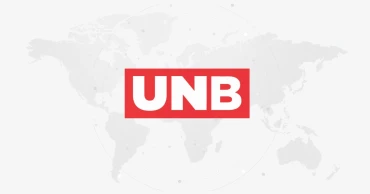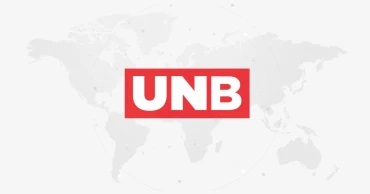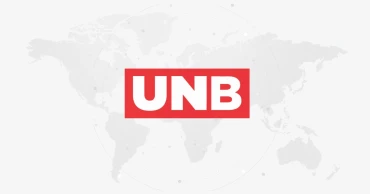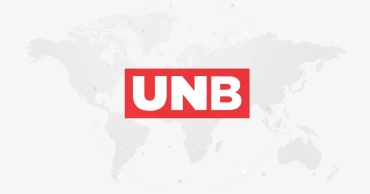PROGGA
Hike in tobacco prices demanded to curtail harm
A human chain was formed on a virtual platform on Sunday, demanding that the government increase taxes on cigarettes and other tobacco products to protect the young generation from harms.
Participants from different parts of the country joined the event by uploading their pictures with festoons and placards on Facebook to press home the demand, using #RaiseTaxSaveLivesBD hashtags.
Also read: Govt urged to reject offer for Covid-19 vaccine from any tobacco company
The event was organised by an anti-tobacco advocacy organisation, PROGGA (Knowledge for Progress), with support from Campaign for Tobacco-free Kids (CTFK), said a release.
In the function, the enhancement of the prices of tobacco products was demanded through imposing specific supplementary duties in the upcoming FY 2022-23 National Budget.
The anti-tobacco organisations demand that the retail price for the low-tier cigarettes should be set at BDT 50 for 10 sticks by imposing BDT 32.50 as specific supplementary duty (SD) in the next national budget.
The retail price of the medium tier cigarettes should be set at BDT 75 for 10 sticks with BDT 48.75 supplementary duty and that of the high-tier cigarette at BDT 120 with BDT 78.00 SD and the premium tier at BDT 150 with BDT 97.50 SD.
If the tobacco prices are raised at the suggested rates, it would encourage 1.3 million adults to refrain from smoking, to prevent the premature deaths of 4.45 lakh adults and 4.48 lakh youths in the long run, and help the government to earn additional revenue of BDT 9,200 crore.
Besides, the anti-tobacco organisations demand the retail price of non-filtered bidis should be increased at BDT 25 for 25 sticks with BDT 11.25 as specific supplementary duty.
Also read: Tobacco industry’s interference continues: Study
In case of smokeless tobacco products, the retail prices for 10 grams of jarda should be raised to BDT 45 with BDT 27 as 60 percent supplementary duty. For 10 grams of gul, the retail price should be enhanced to BDT 25 with BDT 15 as specific supplementary duty.
“Increasing tobacco products’ prices by imposing specific supplementary duties would raise government revenues and reduce tobacco-related deaths and losses,” said PROGGA Executive Director ABM Zubair.
3 years ago
Tobacco industry’s interference continues: Study
The incessant interference from tobacco industry has put the public health of Bangladesh under a greater risk as the country's score in the 2021 Tobacco Industry Interference Index stands at 72 which was 68 last year, as per a study.
PROGGA, a research and advocacy organization conducted the study on ‘Tobacco Industry Interference Index: The FCTC Article 5.3 Implementation’.
The study report was revealed at an event jointly arranged by PROGGA and Anti-Tobacco Media Alliance (ATMA) in the city’s CIRDAP Auditorium, said a press release.
Read: Speakers for amending Smoking and Tobacco Usage (Control) Act
As per the report, the implementation of World Health Organization (WHO)'s Framework Convention on Tobacco Control (FCTC) and also the realization of Bangladesh's vision for becoming a tobacco-free country by 2040 are hindered due to aggressive activities of tobacco companies during the Covid-19 pandemic.
Speaking at the event, Chairman of the Parliamentary Committee on Environment, Forestry and Climate Changes Saber Hossain Chowdhury said tobacco claimed more lives than Covid-19.
“Tobacco is killing more people than COVID-19. Nonetheless, the government is yet to take effective tobacco control measures. The question arises whether the government bodies really hold the spirit of FCTC and the PM's vision of a tobacco-free country,” he said.
Convener of the National Anti-Tobacco Platform and also eminent economist Dr Qazi Kholiquzzaman Ahmad said Bangladesh has made very poor performance in the Global Tobacco Industry Interference Index.
“We also scored the poorest among our South Asian peers. Why did we perform so poorly?" he said.
To improve the situation, he demanded divestment of the government's share in BATB and reinstatement of 25% export duty on tobacco.
Read: Raise tobacco prices, taxes: Activists
Noted journalist Monjurul Ahsan Bulbul said the government bodies need to be sensitized for not receiving any aid from tobacco industry.
“Receiving donations from the tobacco industry is a clear violation of FCTC as well as in conflict with the declaration of the Prime Minister,” he said.
The study findings show that interference from tobacco companies has increased during January 2020-March 2021 and there has been no progress in the implementation of FCTC Article 5.3 Guidelines.
The tobacco industry's attempts were seen to interfere and exert influence in policy-making via diplomatic channels during the period , as per the report.
4 years ago
Trans-fat must be regulated to combat heart diseases: Speakers
Speakers at a webinar here on Tuesday urged the government to finalise the regulations to limit the intake of Trans Fatty Acid (TFA) or trans-fat-laden foods, which is a major cause of heart diseases.
On the eve of World Heart Day 2021 (Sept 29), the webinar titled “Risks of Trans Fat-induced Heart Diseases in Bangladesh and Way Forward” was jointly organized by PROGGA (Knowledge for Progress) and National Heart Foundation of Bangladesh in association with Global Health Advocacy Incubator (GHAI).
“Elimination of trans fat will play a key role in preventing non-communicable diseases. We expect that the government will finalize the regulations at the earliest,” said Prof Sohel Reza Chowdhury of the National Heart Foundation.
Muhammad Ruhul Quddus, GHAI’s Bangladesh Country Lead, said “Unless trans-fat in food is eliminated, the risks of trans-fat-induced heart diseases will rise, expenditure on healthcare services will increase, and the economy of the country will incur losses.”
PROGGA Executive Director ABM Zubair said young people generally consume more trans-fat-laden food. “If the trans-fat is not eliminated from food products, the young generation will be at fatal health risks,” he said.
Read: Public health at risk as PHO found with excessive trans-fats in city: study
At the webinar, it said TFA or trans-fat is a toxic food element that increases the risks of heart diseases and related premature deaths. Dalda or bonospoti ghee, as well as the foods prepared with it, fast food, and bakery items contain trans-fat.
A study has estimated that one in every five youths in Bangladesh is vulnerable to heart diseases.Aiming to reduce the prevalence of risks of heart diseases and related premature deaths, the WHO has set the target of eliminating trans-fat from the global food supply chain by 2023.
The Bangladesh Food Safety Authority (BFSA) has drafted the “Limiting Trans Fatty Acids in Foodstuffs regulations, 2021”. It has already been vetted, but not finalized yet.
With the theme of “Use Heart to Connect,” World Heart Day 2021 is going to be observed on Wednesday.
Heart diseases are the prime cause of death globally. Most alarmingly, the youth of Bangladesh are highly prone to be diagnosed with heart diseases recently. Intake of trans-fat-laden food is a major cause of heart diseases.
According to the World Health Organization (WHO), Bangladesh ranks among the 15 countries with the highest burden of trans-fat-induced heart diseases.
4 years ago
World No Tobacco Day tomorrow
PROGGA (Knowledge for Progress), an anti-tobacco platform, on Sunday demanded to introduce Specific Taxes and amend Tobacco Control Law, with World No Tobacco Day (WNTD) being observed on Monday around the globe. This year the theme of WNTD is: Commit to quit.
Abstaining from tobacco use for a whole year decreases the risk of coronary heart disease to about half that of a smoker. Within 10 years of quitting, the risk of lung cancer falls to about half that of a smoker. Compared to those who continue tobacco use, those who quit at about 30-40 years of age, gain almost 9-10 years of life expectancy
Tobacco is one of the major contributing factors to lung and cardiovascular diseases. Tobacco users are two to four times more likely to get heart disease (heart attack and stroke) than nonsmokers. Tobacco, responsible for 25 percent of all cancer deaths globally, is linked to at least 20 cancer types. Particularly, lung cancer risk is around 25 times higher in tobacco users compared with those who have never smoked. About 80% of all COPD (chronic obstructive pulmonary disease) is caused by cigarette smoking and smokers are 13 times more likely to die from COPD than non-smokers. Smokers face a 40 – 50 percent higher risk of developing severe disease and death from COVID-19, says WHO.
READ: Experts frustrated at NBR's role as calls for specific taxes on tobacco go unheeded
Tobacco also causes irreparable damage to one’s family and surroundings. As per the 2017 Global Adult Tobacco Survey (GATS) of World Health organization (WHO), currently 38.4 million people in Bangladesh face secondhand smoking in work, transport and other public places on a regular basis. About 40.8 million (39%) Bangladeshis are exposed to passive smoking at home, with the majority being women. A recent study conducted among school children of Dhaka has found out that 95 percent of school-going children have higher nicotine in their saliva samples which is undoubtedly a result of passive smoking.
The use of tobacco causes around 126,000 deaths in Bangladesh a year. The financial loss (due to medical expenditure and loss of productivity) incurred per year due to tobacco use exceeds BDT 30,560 crore. A matter of particular concern is that currently the lowest income people have a much higher rate (48%) to use tobacco than the highest earning class (24%).
Between 2009 and 2017, the average monthly expenditure for bidi has increased by 50% for each individual smoker. Currently, a cigarette smoker spends on average BDT 1077.7 per month for cigarettes. On the contrary, the average monthly expenditure for education and health of a household is only BDT 835.7 and 700 respectively (Household Income and Expenditure Survey 2016). If the money spent on tobacco could be channeled into spending for education, health or the fight against human poverty, the economic condition of families could be radically improved.
On the occasion of the World No Tobacco Day 2021, ABM Zubair, Executive Director of PROGGA said, the poor demographic is predominantly more price sensitive. Once prices of tobacco products are increased, it decreases the use of tobacco, tobacco-related diseases and deaths and other losses. So, increasing taxes on tobacco is a pro-poor measure.
Most importantly, to achieve a tobacco-free Bangladesh by 2040, cigarettes and other tobacco products need to be brought out of the purchasing capacity of the masses through the imposition of specific taxes.
READ: Doctors for raising tobacco tax to protect public health
In addition, measures such as removing the provision of “designated smoking area”, banning smoking in all public places, work spaces, and public transport, banning the display of tobacco products at points of sale, banning ‘corporate social responsibility’ activities of tobacco companies, banning the sale of single sticks and unpackaged smokeless tobacco, banning the sale and import of e-cigarettes and heated tobacco products, and allowing stricter rules on packaging including increases to the size of graphic health warnings- should be adopted and implemented through an amendment of tobacco control law.
4 years ago
PROGGA, ATMA for imposing specific taxes on tobacco products
Research and Advocacy Organization PROGGA (Knowledge for Progress) and Anti-Tobacco Media Alliance (ATMA) have demanded the government to impose specific taxes on cigarettes and other tobacco products in the upcoming budget for 2021-22.
In a press conference held virtually on Tuesday, the two organizations unveiled their proposals regarding tobacco taxes and prices in the 2021-22 FY national budget.
Implementation of proposals would prevent premature deaths of nearly 390,000 current adults and 400,000 current youth, according to release.
Also read: Dhaka Conference: Amend tobacco laws, impose specific taxes
In addition, supplementary duty, health development surcharge and VAT on cigarettes would also earn the government Tk 34 billion in additional revenues, the organizations claim.
The Project Head of Tobacco Control at PROGGA Md Hasan Shahriar presented the budget proposals are-- Introducing a tiered specific excise (supplementary duty -SD) with uniform tax burden (SD share of 65% of final retail price) across all cigarette brands.
In the low-tier, the retail price should be set at 50 for 10 sticks, followed by Tk 32.50 as specific supplementary duty (SD); In the medium-tier set the retail price at Tk 70 for 10 sticks and Tk 45.50 should be imposed as SD; In the high-tier, the retail price should be set at 110for 10 sticks, followed by Tk 71.50 as SD; and in the premium tier, set the retail price at Tk 140 for 10 sticks and BDT 91 should be imposed as SD.
Read Amend existing law to build tobacco-free Bangladesh
Reducing price tiers from four to two in the medium-term (2021-22 to 2025-26) by reducing the gaps in final prices and tax rates between cigarettes brands
For 25 non-filtered bidi sticks, the retail price should be Tk 25, followed by a specific supplementary duty of Tk 11.25. The price for 20 filtered sticks should be Tk 20, which will be followed by a specific supplementary duty of Tk 9. As a result of such measures, in both filtered and non-filtered bidis, the specific supplementary duty will be 45 percent of final retail prices.
For SLT products, the price per 10-gram jarda and gul should be Tk 45 and 25 respectively. A specific supplementary duty of Tk 27 should be imposed on per 10-gram jarda. For gul, the specific supplementary duty should be Tk 15. As a result of such measures, in both jarda and gul, the specific supplementary duty will be 60 percent of final retail prices.
Read Bring smokeless tobacco products under tax net: PROGGA
They also propose to retain the existing 15% Value Added Tax (VAT) and 1% Heath Development Surcharge on all tobacco products.
According to the Global Adult Tobacco Survey (GATS), 2017, between 2009 and 2017, there has been a 1.5 million increase in the number of cigarette users. The numbers reveal that the existing tobacco tax structure has not been contributing to make Bangladesh a tobacco-free country by 2040, as envisioned by the Honorable Prime Minister.
With the ongoing second wave of Covid-19 pandemic, the health sector and overall economy of the country are going through precarious condition. If tobacco use goes unchecked during such a period of vulnerabilities, it would put the additional risk for public health, Shahriar added.
Also read:1.26 lakh people die in Bangladesh every year in diseases ...
According to World Health Organization (WHO), smokers are more likely to become severely ill when infected with covid-19. This makes the existing tobacco users, around 40 million in number, extremely vulnerable to severe covid-19 infection.
In Bangladesh, tobacco use claims 126,000 lives prematurely each year. In a 2019 study titled “Economic Cost of Tobacco Use in Bangladesh: A Health Cost Approach”, it was revealed that in 2017-18, the economic cost (medical expenses and loss of productivity) of tobacco use stood at Tk30,560 crore while revenues from the tobacco sector in 2017-18 FY was only Tk 22,810 crore.
He also said raising the prices of tobacco products would discourage the youth from starting use and getting addicted while encouraging the existing users belonging to the poor demographic to quit.
Read 10 people fined Tk 2,000 for smoking in public place
Supporting fully the budget proposals to increase tobacco taxes and prices, the convener of the National Anti-Tobacco Platform Dr Qazi Kholiquzzaman Ahmad said the government must look for the welfare of the people, as dictated in our Constitution.
“Unfortunately, the government only prioritizes the revenue aspect, turning a blind eye to how it impacts the lives of the people.” he also said.
Former Vice-Chancellor of Dhaka University Professor Dr AAMS Arefin Siddique said, “To hike tobacco taxes and prices, we can always follow the precedents set by neighbouring Sri Lanka. We can progress through learning from each other. We also need to educate the youth on the detrimental effects of tobacco.”
Read Tobacco causes 20% of deaths from coronary heart disease.
Senior Research Fellow of the Bangladesh Institute of Development Studies (BIDS) Dr Naznin Ahmed said taxes at a specific rate should be imposed on tobacco. It will benefit the government
“The covid-19 pandemic has created an opportunity for broader tobacco control. To utilize this, we need to make the harmful effects of tobacco widely known.” She also said.
The Research Director of Bangladesh Institute of International and Strategic Studies (BIISS) Dr Mahfuz Kabir said the tobacco taxation structure requires fundamental reform. With that end in mind, specific supplementary duty needs to be introduced.
Read Tobacco ban: Industries Ministry quashes health division's proposal
“The implementation of taxation and price related budget proposals, particularly in the low-tier cigarette brands, would significantly increase revenues and lower the health risk of poor demographic, considering the fact that 72 percent of cigarette smokers are users of low-tier brands.” Md Mostafizur Rahman, Lead Policy Advisor for Campaign for Tobacco-Free Kids (CTFK), Bangladesh said.
“We hope, the National Board of Revenue (NBR) will adopt the proposals. It will increase the government earnings, reduce existing tobacco use and also discourage the young from initiating,” Mostafizur added.
Read Are Smokers More Vulnerable to COVID19?
4 years ago
Bring smokeless tobacco products under tax net: PROGGA
PROGGA, the anti-tobacco platform, has proposed that all types of smokeless tobacco products be brought under the government's tax net in the upcoming budget for 2021-22 fiscal.
The organization recommended a good number of suggestions at a webinar Tuesday to reduce the consumption of tobacco products in the country, with the aim to realise a tobacco-free Bangladesh by 2040.
Raising tobacco taxes would encourage nearly 1.1 million adults to abstain from smoking and deter more than 800,000 youth from smoking initiation and save the lives of nearly 390,000 current adults and 400,000 current youth from premature death.
That is all before we even get to the Tk300 billion in tax revenue that it would generate for the government's coffers.
Also read: 1.26 lakh people die in Bangladesh every year in diseases related to tobacco use: PROGGA
The current tobacco tax structure in Bangladesh is complex and inadequate to discourage tobacco use. So, raising taxes in Bangladesh would save lives while increasing government revenue.
Progga’s recommendations are:
- Introducing a tiered specific excise with uniform tax burden (excise share of 65% of final retail price) across all cigarette brands;
- Reducing price tiers from four to two in the medium-term by reducing the gaps in final prices and tax rates between cigarettes brands;
- cutting down the prevalence of cigarette smoking from 15.1% to 14.1%;
- Increasing cigarette prices more at the LOW tier will help relatively lower income smokers in the LOW tier to quit and at the same time limit the ability of smokers to substitute to cheaper brands when prices increase in the higher price tiers. Jacking up prices of bidi and SLTs will discourage the use of such products among low-income people and significantly increase the revenues for the government.
Read Tobacco causes 20% of deaths from coronary heart disease: Report
Other Recommendations are:
- To reduce affordability of tobacco, increase specific supplementary duty regularly, based on inflation and increase in per-capita income;
- Simplifying the tobacco tax system by gradually eliminating distinctions between different tobacco products (filtered /non-filtered, tiers of cigarettes, distinctions between jarda and gul etc);
- Gradually introducing standardized packaging, i.e. marketing all forms of tobacco products in same amount packs (i.e. same number of sticks or same weight in container);
- Adopting and implementing a simple and effective tobacco tax policy (for 5 years) which will decrease tobacco use and increase revenue;
- Reinstating the 25 percent export duty on tobacco products.
Also read: National Budget: Progga, ATMA for hiking tobacco goods revenue
Following these tax recommendations would greatly further economic development and align tobacco tax policy in Bangladesh with global best practices.
Bangladesh has committed to achieve tobacco-related targets under the Global Action Plan for the Prevention and Control of NCDs and the Sustainable Development Goals (SDGs), specifically SDG 8. Raising taxes on tobacco is a cost-effective way to reach those targets. It is also a major step towards achieving the vision of a tobacco-free Bangladesh by 2040.
At the same time, tobacco tax reform will generate significant additional revenue to finance Bangladesh health and development priorities. This is a clear ‘win-win’ for the Government and people of Bangladesh.
Read Anti-tobacco platform’s annual conference on Saturday
4 years ago
National Food Safety Day tomorrow
The National Food Safety Day will be observed on Tuesday in the country to raise mass awareness regarding the activities and procedures for producing and distributing safe food.
5 years ago
Bangladesh: Frame laws to limit trans fat in foods, say experts
Pointing out that industrially produced trans fat, often present in tasty treats, is a silent killer, experts have urged the Bangladesh government to formulate laws at the earliest to rid foods of the 'abdominal fat' in order to prevent hundreds of premature deaths every year.
5 years ago
Anti-tobacco lobby wants stricter measures introduced through legislation
In a bid to ensure fully smoking-free environment, two anti-tobacco advocacy organisations –-PROGGA (Knowledge for Progress) and Anti-Tobacco Media Alliance (ATMA)— on Monday proposed that the ban on smoking be extended to all public places, workplaces and public transport, including abolishment of ‘designated smoking zones’ provided in public places and work places.
5 years ago
Amend existing law to build tobacco-free Bangladesh
Participants at a workshop on Thursday urged the government to amend the existing tobacco control law immediately to build a tobacco-free Bangladesh by 2040.
5 years ago






.jpg)
.jpg)





